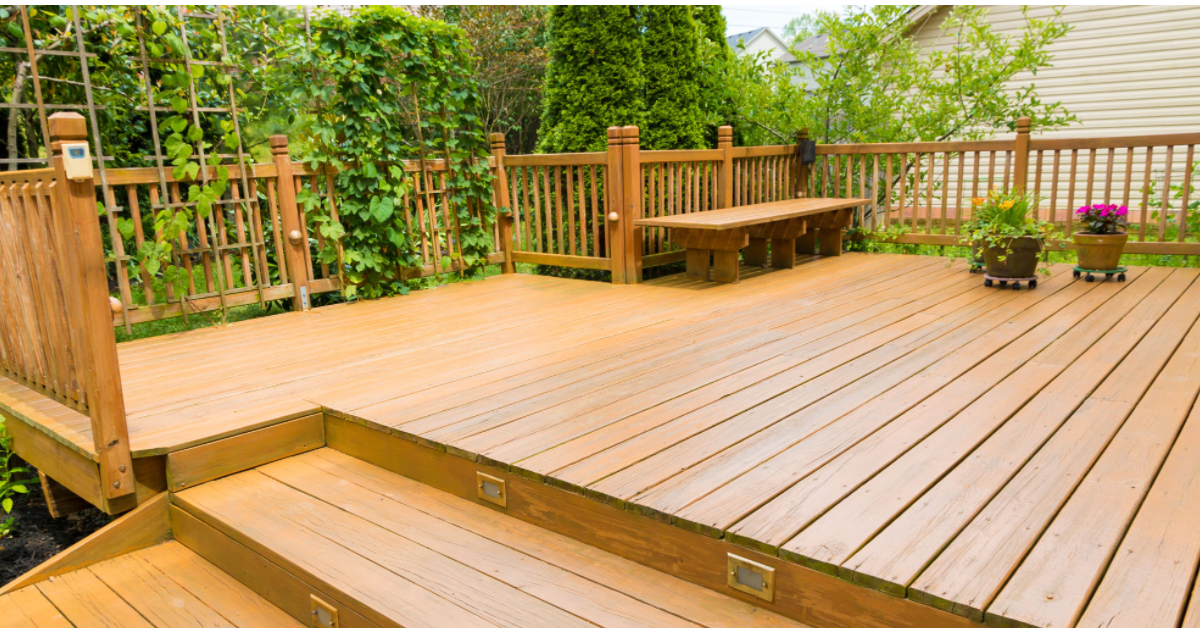Are you planning to build a deck in your backyard or does your old one need to be restored or replaced? One of the most crucial decisions you’ll need to make is choosing the best material for your deck. The material you select will determine the deck’s durability, maintenance requirements, appearance, and overall lifespan. In this article, we’ll explore the different materials available and help you make an informed decision for your backyard oasis.
The Importance of Selecting the Right Material
Before we delve into the best materials for building a backyard deck, let’s understand why choosing the right material is crucial. A deck is an extension of your living space, a place where you can relax, entertain guests, and enjoy the outdoors. It’s essential to consider factors such as weather resistance, durability, maintenance, and aesthetics to ensure your deck stands the test of time while enhancing the beauty of your backyard.
Pressure-Treated Lumber: The Classic Choice
One of the most popular choices for backyard decks is pressure-treated lumber. This material is known for its affordability and availability, making it a go-to option for many homeowners. Pressure-treated lumber is chemically treated to resist rot, insects, and decay, ensuring a longer lifespan for your deck. However, it requires regular maintenance, such as staining and sealing, to prevent warping, splintering, and fading.
Composite Decking: A Blend of Durability and Low Maintenance
If you’re seeking a low-maintenance option without compromising on durability, composite decking is an excellent choice. Made from a blend of wood fibers and recycled plastics, composite decking offers exceptional resistance to rot, insects, and fading. It doesn’t require staining or sealing and can withstand harsh weather conditions. While composite decking comes at a higher initial cost, its long lifespan and minimal maintenance make it a worthwhile investment.
Tropical Hardwood: Exotic Elegance for Your Deck
For a truly luxurious and exotic look, tropical hardwood is a premium choice for building a backyard deck. Woods like ipe, tigerwood, and mahogany are known for their exceptional durability, natural resistance to insects and rot, and stunning aesthetics. Tropical hardwoods require regular maintenance, such as oiling and sealing, to preserve their color and protect them from the elements. Keep in mind that the high density of these woods makes installation more challenging and time-consuming.
PVC Decking: The Ultimate in Durability and Versatility
If you’re looking for a deck material that’s virtually indestructible, PVC (polyvinyl chloride) decking is your answer. PVC decking is engineered to be highly resistant to moisture, mold, insects, and fading. It doesn’t require any staining or sealing and can withstand even the harshest weather conditions. PVC decking is available in various colors and finishes, allowing you to create a customized deck that suits your style.
Aluminum Decking: Strength and Longevity Combined
If you prioritize strength, longevity, and a modern aesthetic, aluminum decking might be the perfect choice for your backyard deck. Aluminum decking is incredibly durable, resistant to rust, insects, and rot, and can withstand heavy loads. It requires minimal maintenance and is available in a range of colors and finishes. However, keep in mind that aluminum decking can be more expensive compared to other materials.
Cedar: A Natural Beauty
Cedar is a classic and timeless option for building a backyard deck. Known for its natural beauty and resistance to decay, cedar provides a warm and inviting ambiance to your outdoor space. It requires regular maintenance, such as staining and sealing, to preserve its color and protect it from the elements. While cedar may not be as durable as other materials, proper maintenance can extend its lifespan.
FAQs about Building a Backyard Deck
Q1: What factors should I consider when choosing deck material?
When selecting a material for your backyard deck, consider factors such as durability, maintenance requirements, weather resistance, cost, and aesthetics. Assess your priorities and choose a material that aligns with your needs and preferences.
Q2: How often should I maintain my deck?
The frequency of deck maintenance depends on the material you choose. Pressure-treated lumber typically requires staining and sealing every 2-3 years, while composite and PVC decking require minimal maintenance, usually limited to regular cleaning.
Q3: Can I install a deck myself, or should I hire a professional?
While installing a deck yourself is possible, it requires a certain level of expertise, especially for more complex materials like tropical hardwood or aluminum. Hiring a professional deck builder ensures proper installation, reducing the risk of structural issues and ensuring your deck’s longevity.
Q4: Are permits required for building a backyard deck?
Permit requirements vary depending on your location and the size of your deck. It’s essential to check with your local building department to determine if permits are necessary. Failing to obtain the required permits can result in fines or having to remove the deck.
Q5: How long does it take to build a deck?
The construction timeline depends on various factors, including the size of the deck, complexity of the design, material chosen, and the availability of labor. On average, building a deck can take anywhere from a few days to a few weeks.
Q6: Which deck material offers the best value for money?
Composite decking often offers the best value for money due to its low maintenance requirements and long lifespan. While it may have a higher upfront cost compared to other materials, the savings on maintenance and longevity make it a cost-effective option in the long run.
In Conclusion
Choosing the best material to build a backyard deck is a crucial decision that will impact the aesthetics, durability, and maintenance requirements of your outdoor space. Consider factors such as durability, maintenance, weather resistance, and cost when making your choice. Whether you opt for pressure-treated lumber, composite decking, a tropical hardwood, PVC, aluminum, or cedar, selecting the right material will ensure your deck stands strong and beautiful for years to come.


